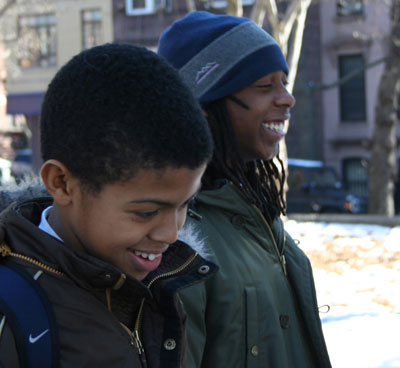With God Loves Uganda, Academy Award-winning filmmaker Roger Ross Williams (Music by Prudence) explores the role of the American Evangelical movement in fueling Uganda’s terrifying turn towards biblical law and the proposed death penalty for homosexuality. Thanks to charismatic religious leaders and a well-financed campaign, these draconian new laws and the politicians that peddle them are winning over the Ugandan public. But these dangerous policies and the money that fuels them aren’t coming from Africa; they’re being imported from some of America’s largest megachurches.Using vérité, interviews, and hidden camera footage, the film allows American religious leaders and their young missionaries that make up the “front lines in a battle for billions of souls” to explain their positions in their own words. Shocking and enlightening, touching and horrifying, God Loves Uganda will leave you questioning just how closely this brand of Christianity resembles the one you think you know.
Summary info for schedule – will be hidden on film page

God Loves Uganda
83-minutes
Screening day / time
God Loves Uganda
God Loves Uganda
Filmmaker Notes:
I grew up in the black church. My father was a religious leader in the community and my sister is apastor. I went to church every Sunday and sang in the choir. But for all that the church gave me, for allthat it represented belonging, love and community, it also shut its doors to me as a gay person. Thatexperience left me with the lifelong desire to explore the power of religion to transform lives or destroythem. That desire took a new form when I visited Africa to make my film Music by Prudence . I was struckby how intensely religious and socially conservative Africans were. There was literally a church on everycorner. People were praying in the fields. It was like the American evangelical Christianity I had known –but magnified by Africa’s intensity. The more I learned about religion in Africa, the more intrigued I became. It was as if the continent wasgripped with religious fervor. And the center of it was Uganda. I began to research; I took my first trip toUganda. Uganda, I discovered is the number one destination for American missionaries. The AmericanEvangelical movement has been sending missionaries and money, proselytizing its people, and trainingits pastors for a generation; building schools, manning hospitals, even running programs for trainingpolitical leaders. Its President and First Lady are evangelical Christians, as are most members of itsParliament and 85% of the population. I began meeting in Uganda – and in America – some of the missionaries who have helped createUganda’s evangelical movement. They were often large-hearted. They were passionate and committed.Many of them were kids from America’s heartland. And they were, I began to discover, part of a largerChristian evangelical movement that believed that Biblical law should reign supreme – not just in people’shearts – but in the halls of government. This movement, fueled by American money and idealism, hadproduced a noxious flower – Uganda’s Anti-Homosexuality Bill, which made death as one of the penaltiesfor homosexuality. Committed to the idea that God wanted all forms of “sexual immorality” eliminated from the earth,” it wasthe reason why Uganda had dismantled its successful AIDS program in favor of an abstinence policy.I thought about following the activists-brave and admirable men and women-who were fighting againstthese policies. But I was more curious about the people who, in effect, wanted to kill me. (According to theprovisions of the Anti-Homosexuality Bill, I could be put to death or imprisoned.) Notably, almost everyevangelical I met – American or Ugandan – was polite, agreeable, even charming. Yet I knew that if thebill passed, there would be blood on the streets of Kampala.What explains that contradiction? What explains the murderous rage and ecstatic transcendence? In thewell-known trope about Africa, a white man journeys into the heart of darkness and finds the mystery ofAfrica and its unknowable otherness. I, a black man, made that journey and found – America. -Roger Ross Williams



